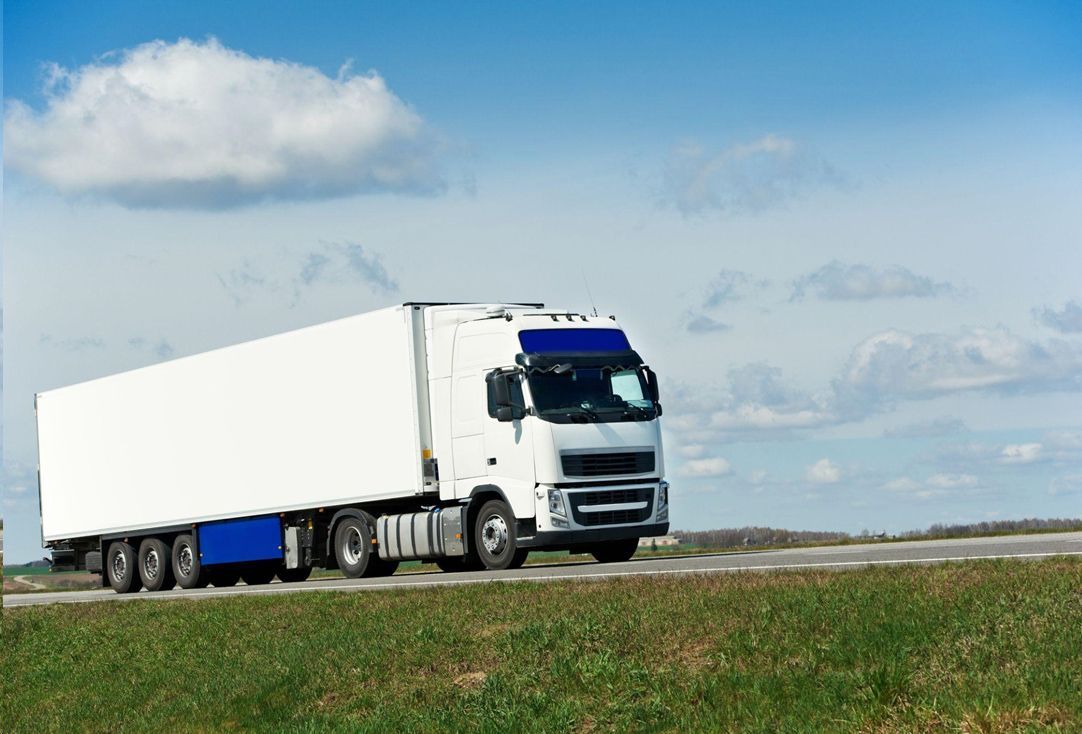6 Types of Truck Driving Jobs
- By Admin
- •
- 26 Apr, 2023
- •
Truck driving is essential to the economy and helps transport goods. The demand for truck drivers continues to rise, creating diverse job titles and positions for truck drivers. The job titles vary depending on specialized training, the type of truck, and the number of miles traveled. In this article, learn about prominent trucking jobs to choose from.
Also, check out our previous blog post about other various types of truck driving jobs.
1. Flatbed Trucker
Flatbed trucks are different from tractor-trailers and transport machinery or dry products. The truck's open-air trailer requires specialized skills to operate and secure the cargo. For such trucks, drivers use tarps, straps, come-a-longs, and chains to secure cargo.
Flatbed truck cargo is usually long and difficult to fit into other types of trucks. For example, the drivers have to transport oversized freight, military vehicles, and dry goods. Because the transportation is riskier and longer, flatbed truckers often receive higher pay than other types of truck drivers.
2. Tanker Truckers
Tanker trucking involves transporting liquids, beverages, gases, and chemicals. The trucking operation is difficult because the liquids or gases may be hazardous and can quickly cause dangerous situations. The cargo is usually in a cylindrical tank that attaches to a trailer, requiring difficult trucking maneuvers. Tanker drivers must have special skills, such as reading gauges, keeping records, and offloading liquid.
3. Refrigerated Freight Drivers
Refrigerated freight haulers carry cargo that requires a specific temperature to remain usable. The cargo can be body products, meat, medical products, food, and other highly perishable goods. The drivers may have to transport the perishable goods locally or nationwide. Some trucks have freezer shipping containers to handle temperature fluctuations and meet specific distance and time requirements.
Refrigerated freight drivers often receive higher pay rates because they have a high degree of responsibility. The drivers must know how to pinpoint technical issues, store items correctly, and maintain temperature stability. The drivers must also know how to do emergency and minor repairs to protect the cargo.
4. Dry Van Truckers
Dry van truckers operate completely covered semi-trucks to protect the goods inside. The truck is not temperature-controlled and often transports dry, non-perishable goods. This position is often for drivers just starting their careers and seeking to gain trucking experience. Dry van trucks are easy to operate, and drivers usually do not unload their trucks.
5. Local, Regional, and OTR Drivers
Local, regional, and over-the-road (OTR) drivers are defined by the number of miles traveled. Local drivers make short trips and often remain in or near the same city. The local drivers follow the same route and can make many trips in one day. Regional drivers drive longer distances than local drivers but typically stay within the same metropolitan area or state.
OTR drivers transport cargo over long distances, sometimes from coast to coast. A single trip can take several weeks to complete and might involve two drivers sharing the work. Although the trip is longer, many truck drivers find the long drive appealing and exciting.
6. Heavy Truckers
Heavy haulers are similar to flatbed truckers in that both types of trucks transport oversized loads. However, heavy haulers have a different design to transport large items such as solar panels, blades, and construction equipment. The design of heavy haulers includes telescopic or extendable trailers, lowboys, and two-level trailers.
The extra weight and unique design require drivers to have special skills to maneuver hills and wide turns. This job might require a team of pilot vehicle drivers, loading specialists, and route planners.
A career as a truck driver is well paying and exciting. The journey begins when you join Commercial Trucking School. We have highly qualified instructors and a flexible training schedule to accommodate your needs. Contact us to take advantage of the many opportunities for careers and job advancement available in the trucking industry.
Also, check out our previous blog post about other various types of truck driving jobs.
1. Flatbed Trucker
Flatbed trucks are different from tractor-trailers and transport machinery or dry products. The truck's open-air trailer requires specialized skills to operate and secure the cargo. For such trucks, drivers use tarps, straps, come-a-longs, and chains to secure cargo.
Flatbed truck cargo is usually long and difficult to fit into other types of trucks. For example, the drivers have to transport oversized freight, military vehicles, and dry goods. Because the transportation is riskier and longer, flatbed truckers often receive higher pay than other types of truck drivers.
2. Tanker Truckers
Tanker trucking involves transporting liquids, beverages, gases, and chemicals. The trucking operation is difficult because the liquids or gases may be hazardous and can quickly cause dangerous situations. The cargo is usually in a cylindrical tank that attaches to a trailer, requiring difficult trucking maneuvers. Tanker drivers must have special skills, such as reading gauges, keeping records, and offloading liquid.
3. Refrigerated Freight Drivers
Refrigerated freight haulers carry cargo that requires a specific temperature to remain usable. The cargo can be body products, meat, medical products, food, and other highly perishable goods. The drivers may have to transport the perishable goods locally or nationwide. Some trucks have freezer shipping containers to handle temperature fluctuations and meet specific distance and time requirements.
Refrigerated freight drivers often receive higher pay rates because they have a high degree of responsibility. The drivers must know how to pinpoint technical issues, store items correctly, and maintain temperature stability. The drivers must also know how to do emergency and minor repairs to protect the cargo.
4. Dry Van Truckers
Dry van truckers operate completely covered semi-trucks to protect the goods inside. The truck is not temperature-controlled and often transports dry, non-perishable goods. This position is often for drivers just starting their careers and seeking to gain trucking experience. Dry van trucks are easy to operate, and drivers usually do not unload their trucks.
5. Local, Regional, and OTR Drivers
Local, regional, and over-the-road (OTR) drivers are defined by the number of miles traveled. Local drivers make short trips and often remain in or near the same city. The local drivers follow the same route and can make many trips in one day. Regional drivers drive longer distances than local drivers but typically stay within the same metropolitan area or state.
OTR drivers transport cargo over long distances, sometimes from coast to coast. A single trip can take several weeks to complete and might involve two drivers sharing the work. Although the trip is longer, many truck drivers find the long drive appealing and exciting.
6. Heavy Truckers
Heavy haulers are similar to flatbed truckers in that both types of trucks transport oversized loads. However, heavy haulers have a different design to transport large items such as solar panels, blades, and construction equipment. The design of heavy haulers includes telescopic or extendable trailers, lowboys, and two-level trailers.
The extra weight and unique design require drivers to have special skills to maneuver hills and wide turns. This job might require a team of pilot vehicle drivers, loading specialists, and route planners.
A career as a truck driver is well paying and exciting. The journey begins when you join Commercial Trucking School. We have highly qualified instructors and a flexible training schedule to accommodate your needs. Contact us to take advantage of the many opportunities for careers and job advancement available in the trucking industry.

Discover essential truck driving tips for navigating tight spaces and busy roads with confidence. Learn techniques for safe parking, mastering turns, handling blind spots, and using modern technology to ensure smooth driving. Perfect for both new and experienced truck drivers looking to enhance their skills.
If you're considering getting into the commercial trucking industry, read our blog to learn about the skills you can gain at a commercial trucking school.
Commercial trucking can be a satisfying career. Read our blog to learn if you have the personality traits that make you fit for a commercial trucking job.
Read this blog to learn why college graduates should consider a career in the trucking industry, offering high demand, attractive pay, and career growth.
Do you want to become a commercial truck driver? Read this article to learn the necessary qualifications needed to become a commercial truck driver.
With the increasing number of drivers on the road, we should ensure their safety. Learn why safety training is important for commercial truck drivers.
Being a commercial truck driver comes with a unique set of challenges. Read on to learn how you can balance road and home life as a truck driver.






